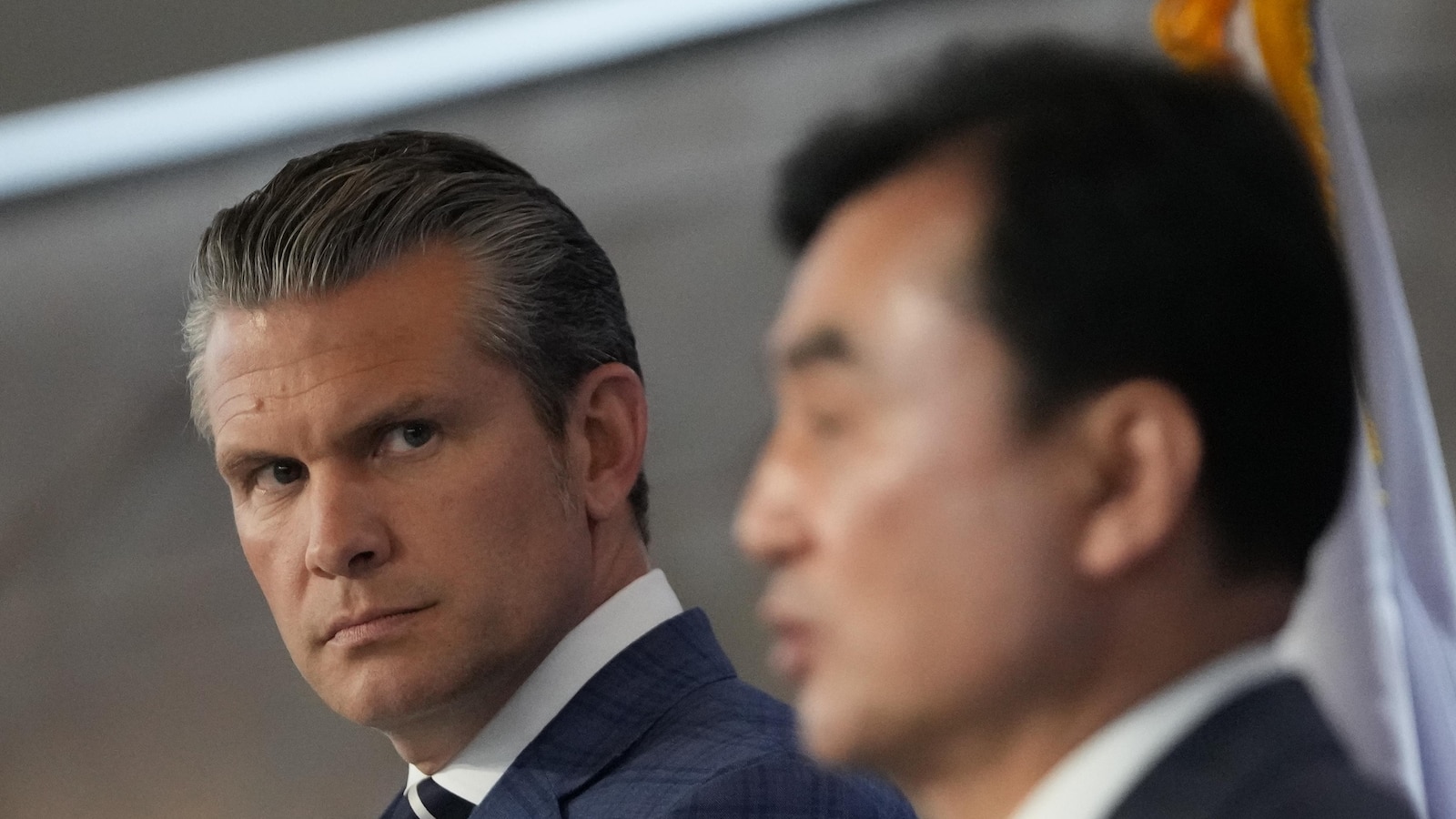Hegseth praises South Korea's plans to boost defense capabilities
3 minute readPublished: Tuesday, November 4, 2025 at 8:00 am

Hegseth Applauds South Korea's Defense Spending Increase
U.S. Defense Secretary Pete Hegseth expressed strong support for South Korea's plans to significantly increase its military spending, emphasizing the importance of the Asian ally taking a more prominent role in its own defense. Following annual security talks with South Korean Defense Minister Ahn Gyu-back, Hegseth highlighted Seoul's commitment to bolstering its defense capabilities, particularly in conventional deterrence against North Korea.
President Lee Jae Myung has requested parliamentary approval for an 8.2% increase in defense spending next year, a move aimed at modernizing South Korea's military arsenal and reducing its reliance on the United States. This shift aligns with the U.S.'s apparent desire for South Korea to enhance its conventional defense capabilities, potentially allowing Washington to focus more on other regional challenges.
During the discussions, both sides agreed to explore ways to maintain and repair U.S. warships in South Korea, leveraging the country's shipbuilding expertise. The alliance, primarily focused on addressing potential North Korean provocations, also acknowledges the need to consider broader regional threats. The U.S. continues to extend nuclear deterrence to South Korea, which does not possess nuclear weapons and is under the U.S. nuclear umbrella.
The two defense leaders also discussed integrating U.S. nuclear capabilities with South Korea's conventional weapons through a "conventional-nuclear integration" (CNI) framework. Minister Ahn reiterated South Korea's commitment to the nuclear non-proliferation treaty, dismissing speculation about the country pursuing its own nuclear program.
While the meeting concluded without a joint statement, Hegseth emphasized the absence of significant disagreements between the two nations, suggesting a more comprehensive agreement is in development. The meeting occurred amidst heightened tensions, with North Korea conducting artillery tests shortly before Hegseth's arrival and expressing displeasure over a recent summit between South Korean and Chinese leaders.
BNN's Perspective: The strengthening of the U.S.-South Korea alliance is a welcome development, particularly given the evolving security landscape in the region. While South Korea's increased defense spending is a positive step, it is crucial to maintain open lines of communication with all regional actors to prevent misunderstandings and ensure stability. The focus on conventional deterrence, while important, should not overshadow the need for diplomatic efforts to address the underlying causes of tension on the Korean peninsula.
Keywords: Pete Hegseth, South Korea, defense spending, military, North Korea, alliance, conventional weapons, nuclear deterrence, Ahn Gyu-back, Lee Jae Myung, security talks, regional threats, DPRK, Republic of Korea, CNI, nuclear non-proliferation treaty